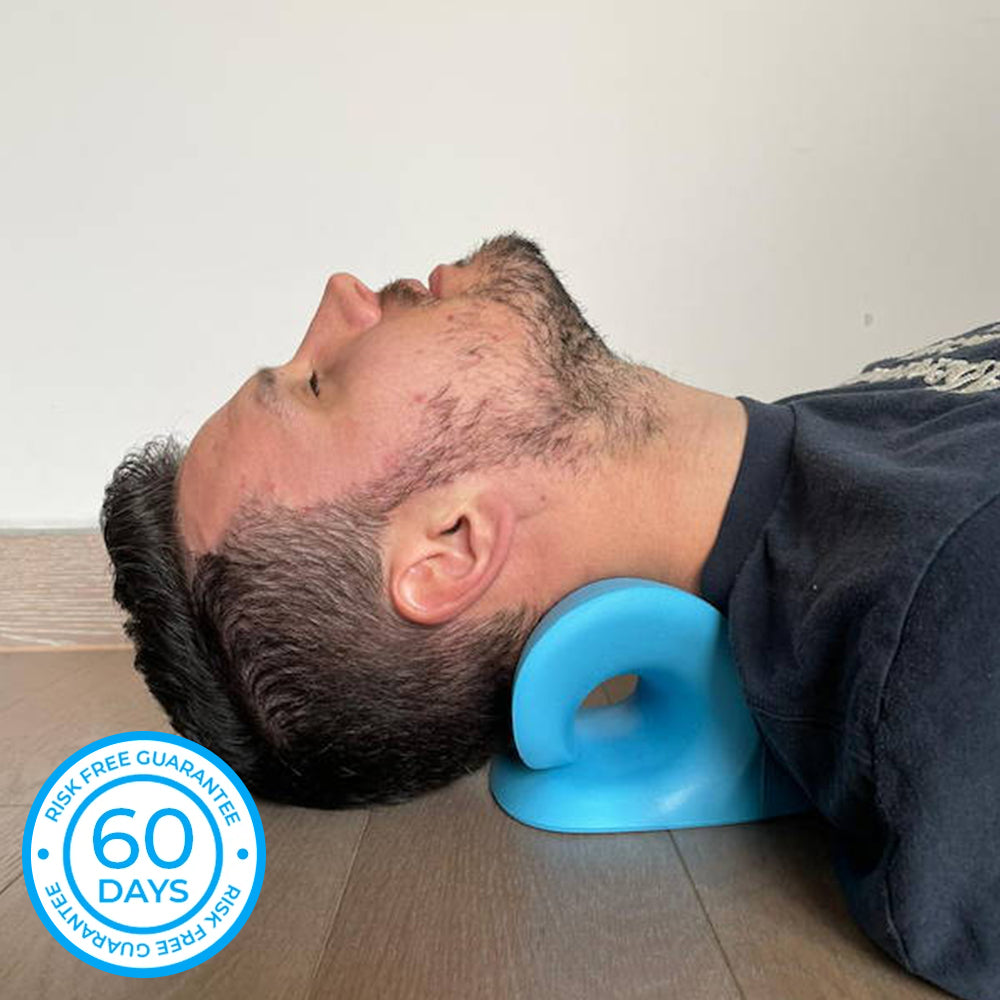Neck Cloud: Ergonomic Design for Optimum Comfort and Pain Decrease
Neck Cloud: Ergonomic Design for Optimum Comfort and Pain Decrease
Blog Article
The Influence of Anxiety on Neck Discomfort: Techniques for Decreasing Tension and Pain
In today's fast-paced world, it's no secret that stress and anxiety has come to be a prevalent variable in the onset and worsening of neck pain. Join us on a journey to unravel the influence of stress on neck pain and discover efficient ways to reduce pain and boost general high quality of life.
Recognizing Stress-Related Neck Discomfort
Neck pain is a common grievance that can frequently be credited to stress. Stress-related neck pain can show up as tension, rigidity, or discomfort in the neck and shoulder location. The link between stress and neck discomfort hinges on the body's physical response to tension, which can cause muscle mass tension and rigidity in the neck muscles. Chronic stress can bring about persistent neck discomfort and exacerbate existing conditions like cervical spondylosis or muscle mass pressures.

Identifying Common Tension Locations
Often experienced by people under stress and anxiety, stress areas in the body can provide valuable insights into the physical indications of psychological stress. One typical stress location is the neck, where anxiety commonly materializes literally. Stress migraines, tight neck muscle mass, and limited variety of movement are usual signs of stress-related neck tension. The shoulders are another typical location where stress collects. Anxiety can create the muscles in the shoulders to tighten, resulting in discomfort and pain. Additionally, the top back is prone to stress build-up, specifically in individuals that experience chronic stress. Poor posture and prolonged sitting can exacerbate tension in this area. The jaw is also a typical area for stress-related tension, as lots of individuals squeeze their jaw or grind their teeth when worried. Recognizing these usual tension locations can aid individuals acknowledge the physical indicators of stress and anxiety and take steps to address them before they rise into persistent discomfort or pain.
Applying Relaxation Techniques
To efficiently take care of stress-related tension in the body, executing relaxation strategies is essential. Leisure methods are beneficial devices for lowering neck pain brought on by tension. Deep breathing exercises can assist calm the mind and kick back tense muscular tissues in the neck and shoulders (neck cloud). Practicing mindfulness meditation can additionally be advantageous in alleviating tension and advertising relaxation. Progressive muscle mass leisure, where you systematically strained and after that loosen up various muscle mass groups, can launch built-up stress in the neck location. Additionally, activities like yoga and tai chi incorporate both physical motion and leisure, making them efficient practices for lowering stress and neck pain. Taking regular breaks throughout the day to stretch and take a break can avoid muscle rigidity Click This Link and stress from building up. By integrating these relaxation methods right into your daily regimen, you can assist take care of anxiety levels, decrease stress in the neck, and ease pain associated with stress-induced neck discomfort.
Including Self-Care Practices
Including self-care techniques is necessary for maintaining overall health and managing stress-related neck pain successfully. Participating in regular physical activity, such as mild extending workouts or yoga, can assist alleviate stress in the neck and shoulders. Exercising great stance throughout the day and taking frequent breaks from long term sitting or screen time can also protect against strain on the neck muscular tissues.
Moreover, prioritizing appropriate rest and developing a consistent sleep regimen can add dramatically to decreasing anxiety levels and advertising relaxation. Producing a relaxing going to bed routine, such as reviewing a publication or taking a warm bath, can aid prepare the body and mind for relaxing rest. Furthermore, preserving a well balanced diet plan rich in nutrients and staying moistened can sustain total health and minimize swelling that might worsen neck pain.
Including mindfulness methods, such as deep breathing workouts or reflection, can assist handle stress and promote relaxation. Taking time for oneself, taking part in pastimes, and setting borders to shield individual time are additionally vital elements of self-care that can add to minimizing tension and minimizing neck pain.
Looking For Specialist Aid
Exactly how can people properly attend to consistent neck discomfort that is impacting their day-to-day live and health? Seeking professional assistance can be a critical action in managing and reducing neck pain. Consulting with medical care specialists such as chiropractic doctors, physical therapists, or orthopedic specialists can offer important understandings and customized treatment strategies. These professionals can carry out detailed assessments to identify the underlying sources of neck pain and suggest ideal interventions.
Chiropractic doctors focus on spine adjustment techniques to boost positioning and decrease tension in the neck location. Physiotherapists use targeted stretches and exercises to enhance muscular tissues, enhance versatility, and enhance general neck function. Orthopedic experts can supply innovative clinical interventions such as shots or medical options for severe situations of neck discomfort.
Conclusion

Stress-related neck discomfort can manifest as tension, stiffness, or pain in the neck and shoulder area. The link between stress and anxiety and neck pain lies in the body's physiological action to stress, which can result in muscular tissue stress and tightness in the neck muscle mass. Tension headaches, rigid neck muscles, and restricted array of activity are usual signs and symptoms of stress-related neck tension. By integrating these leisure methods into your everyday routine, you can help take care of tension levels, decrease tension in the neck, and minimize discomfort associated with stress-induced neck discomfort.

Report this page